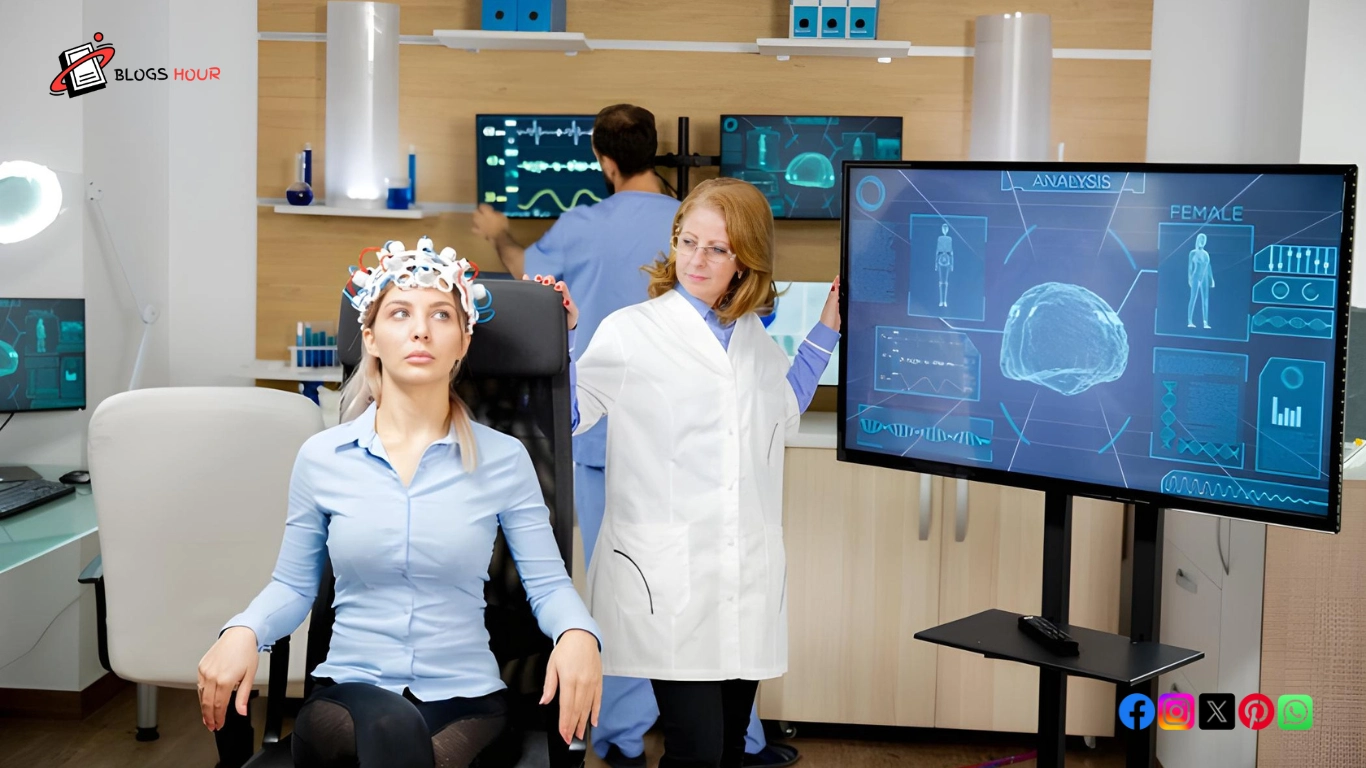Key Takeaways:
- TMS (Transcranial Magnetic Stimulation) Therapy presents neuroscience professionals with a safe treatment option that addresses mental health through noninvasive means primarily for depression therapy.
- Traditional medications cause fewer side effects compared to the experiences reported by patients.
- The scientific community has studied TMS and established its protective and successful characteristics.
Introduction to TMS Therapy
TMS therapy stands as a leading mental health treatment innovation which gives fresh possibilities to people whose past treatments have failed. Magnetic fields stimulate non-invasive brain nerve cell activation which specifically helps people suffering from depression. Transcranial magnetic stimulation in Utah enhanced access to the innovative therapy by making the technology more easily available to residents dealing with mental health issues.
The TMS treatment brings a new approach to unresponsive patients because it specifically activates the brain areas responsible for mood regulation. The therapy functions through enhancing neuromotor activity in inactive brain regions of those with depression to foster better mental stability. The rising popularity marks a fundamental change in mental healthcare administration by adopting routine effective methods that deviate from conventional practices.
How Does TMS Therapy Work?
During TMS therapy a device applies electromagnetic energy to specific brain regions through a coil in order to modify neuronal functions. Scientific studies have established that precise brain stimulation leads to better mental health symptom reduction in individuals with mental health disorders. Treatment usually spans multiple weeks with sessions that create gradually increasing therapy effects during this period.
The Science Behind the Technique
TMS works as a science-based technique because it controls activity patterns in neural networks. The application of electromagnetic currents through TMS stimulates brain regions that are underactive to improve communication between neural systems that regulate emotions. Better brain connectivity because of TMS therapy enables natural healing in the mind to produce balanced outcomes for mood disorder treatment without requiring surgery.
Benefits of Non-Invasive Treatments
Patients together with medical professionals increasingly choose non-invasive TMS therapy because the approach eliminates the need for both drugs and surgeries in patient care. The procedure allows patients to perform their regular daily activities without recovery time following the procedure which makes this approach convenient for people who maintain active lives. Such interventions establish themselves as an encouraging solution which maintains minimal risk for complications.
The method of bypassing blood circulation results in minimal systemic danger to the body. The external application of TMS treatment prevents the introduction of foreign substances because the device remains on the surface of the body. Many patients view this therapy as consistent with their objective of holistic medical practices which support the natural equilibrium of their bodies.
Minimal Side Effects Compared to Medication
Multiple drug side effects influence many patients who benefit from medications at different intensities from mild dizziness to severe bodywide reactions. TMS therapy, however, sidesteps these concerns with its gentle approach. The average side effects people experience from TMS treatment include small scalp irritations alongside brief headaches though both symptoms disappear immediately after therapy ends.
The treatment shows major value to patients who need to minimize drug reactions or those who react negatively to medications. Patients can concentrate on therapy benefits while being worry-free about unpleasant side effects because of which they often choose TMS instead of traditional treatment methods.
Scientific Support and Effectiveness
Multiple scientific studies demonstrate the effectiveness of TMS therapy which gives potential patients scientific evidence for making their treatment decisions. The research paper shows that participants treated by this method experienced significant alleviation of depressive symptoms according to published findings. Research on TMS strengthens depression treatment possibilities and investigates this method as an effective intervention for anxiety disorders and PTSD.
The increasing number of conclusive research studies confirms TMS as a reliable scientific treatment option above traditional depression solutions. Emerging research both improves comprehension of TMS therapy while enhancing practitioner faith in this technique toward full program integration in typical mental healthcare delivery.
Real-Life Success Stories
Countless patients submit testimonials that display the profound changes they experienced because of TMS Therapy. Numerous patients tell stories about their life improvement after receiving TMS treatment which resulted in better wellness and restored normal daily activities. TMS gives those who suffer from chronic depression a chance to return to an active full life along with treatment benefits.
Medical professionals use patient success stories supported by clinical outcomes to show how TMS effectively treats severe cases that no other treatments could manage. When they share their stories about mental health challenges former patients try to provide hope and support others who need similar assistance.
Considering TMS Therapy
Obtaining healthcare professional advice stands essential when deciding between TMS therapy as a treatment possibility. An educated assessment regarding its appropriateness will depend on each patient’s health profile as well as medical record.
Active information seeking and support by potential patients matters given their failure to find successful treatment through traditional methods. The consultation with medical professionals enables patients to choose treatment approaches that perfectly align with their personal health condition thus maximizing benefits from TMS Therapy.
Looking Toward the Future
The medical field will continue to benefit from TMS therapy because ongoing research and favorable clinical results increase its adoption rates. TMS stands as a scientifically verified form of treatment that promotes better mental health services through nonintrusive methods. The increased knowledge about TMS together with its potential enables substantial change to mental health treatment concepts.
Mental wellness advancement dominates our current period where TMS shines as an innovative solution of hope. The technique delivers a minimally invasive solution that understands mental health with maximum effectiveness. Excellent outcomes await patients on their path to recovery since emerging techniques align with dedicated care styles.




